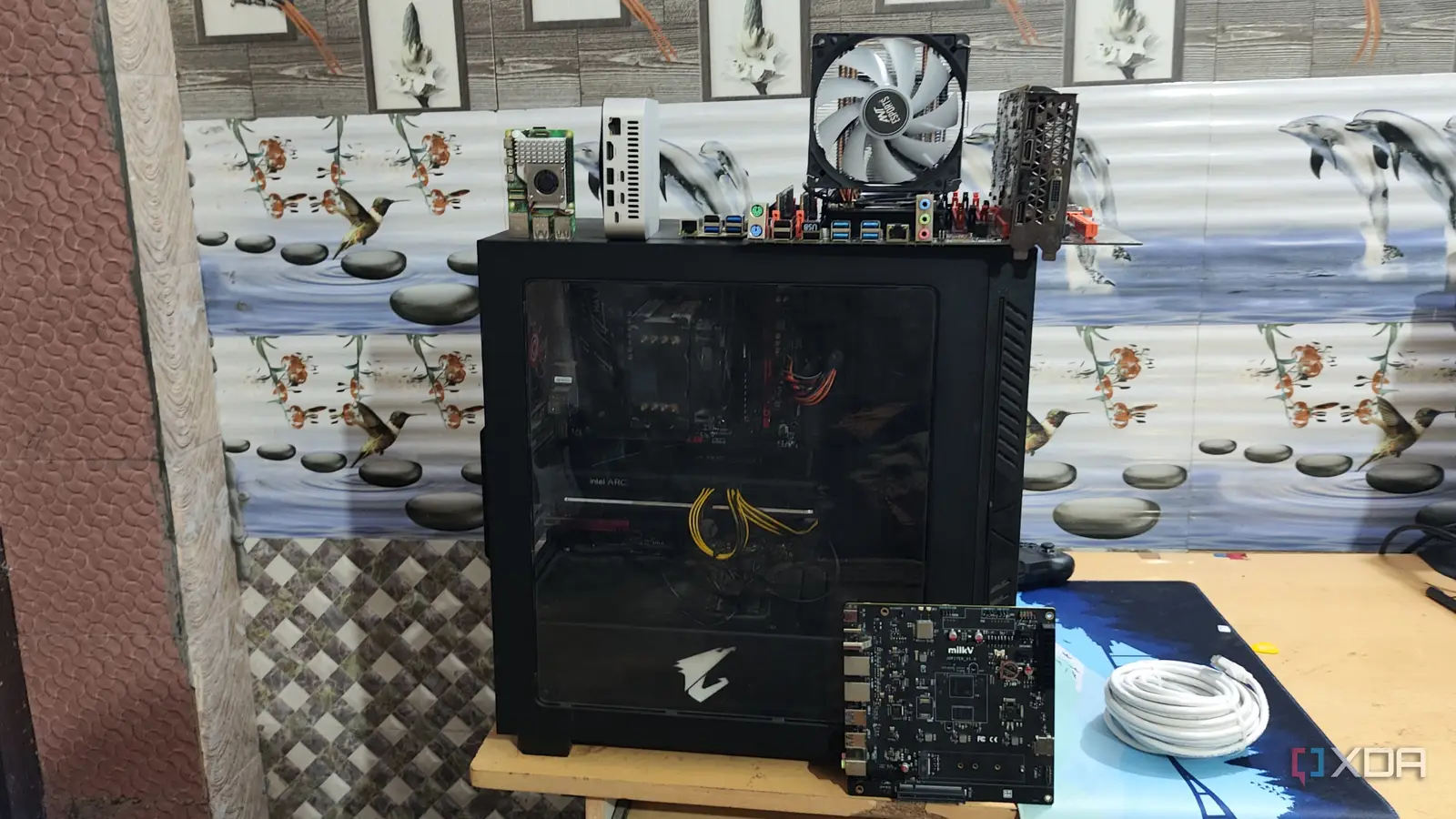
If you’ve ever thought about starting a home lab, you might assume it requires expensive servers or enterprise-grade gear, and it’s easy to get sucked into spending a ton of dosh. The truth is, you probably already have everything you need: an old gaming PC. With a little bit of tinkering, that forgotten hardware can become the backbone of your self-hosting setup, letting you learn virtualization, networking, and server management without breaking the bank.
You probably already have one
At least some parts here and there
The best part of using an old gaming PC as a home lab is that you probably already have one, or at least, some of the parts required lying around. If you’ve gone through a few upgrade cycles for your main PC, there’s probably very little you’ll have to buy new or on the used market to get going. In my case, I had a case, power supply, motherboard, CPU, and RAM just sitting around for months after an upgrade to my fiancée’s PC. Why not put it to use?
Powerful hardware at a fraction of the cost
You don’t need the latest and greatest to get started
Old consumer-grade PC hardware from 3 or 4 generations ago can provide plenty of power to get your home lab off of the ground. Enthusiasts tend to upgrade every few years, so if you don’t have a spare old rig lying around like I did, you can easily put together a system from pre-owned parts for a very low price, or pick up a complete rig from 5–10 years ago for a bargain. An Intel Core i7 or Ryzen 7 CPU from 2 or 3 generations ago, 16 GB of RAM or more, and even a mid-range GPU is a rock-solid start to your home lab journey.
Unlike specialized enterprise gear, gaming systems are easy to expand. You can add SSDs, HDDs, and NVMe drives to create your own storage pool. Cheap kits of DDR4 RAM are widely available, so you can easily max out memory. For the cost of a used console, you’ll have a machine that’s more than capable of hosting containers, virtual machines, or even a small database cluster.
Compatible with virtually any OS
No worries about operating system here
One of the biggest advantages of consumer hardware is flexibility. Gaming PCs support everything from Windows Server to Linux distros like Proxmox, TrueNAS, or even desktop ones like Ubuntu. You won’t run into the vendor lock-in headaches that come with proprietary enterprise hardware, and you won’t need obscure drivers or firmware just to get the system working. You can dual-boot, or spin up live environments while never having to worry about compatibility. Personally, I turned my old gaming rig into a Proxmox box. It gave me the flexibility I wanted, enabling me to run the services I wanted with minimal overhead, using the operating systems I was used to.
Great features for a home lab out of the box
A few toggles and you’re good to go
While you might be missing out on things like ECC memory, even older gaming PCs come packed with features that are surprisingly useful for a lab setup. Intel CPUs include Quick Sync Video, which makes them ideal for running Plex or Jellyfin servers without a power-hungry GPU. Both Intel and AMD chips support hardware virtualization, meaning you can spin up multiple VMs or even experiment with PCIe passthrough. This can be toggled easily within your motherboard’s BIOS.
If you’re on a standard ATX motherboard, you’ll have access to multiple PCIe slots, so you can add extras like 10GbE NICs, HBAs for storage arrays, or even additional GPUs. Many boards support 64GB of RAM or more, and cooling systems designed for gaming translate perfectly into 24/7 uptime. The hardware you already have is super capable of being a home lab, all it needs is the right OS and services.
It’s a great bridge to enterprise-grade hardware
No need to jump in the deep end
Starting with a gaming PC lets you get your hands dirty with all kinds of tools, services, and operating systems, without needing to splurge on enterprise gear. When you do eventually outgrow your old gaming PC, the knowledge you have gained transfers to the new gear. You’ll know what kind of server you actually need, which workloads require more horsepower, and which features matter most. In the meantime, you’ll have a lab environment that’s quiet, affordable, and flexible enough to learn anything you want.
A gaming PC is the perfect way to start your home lab journey



